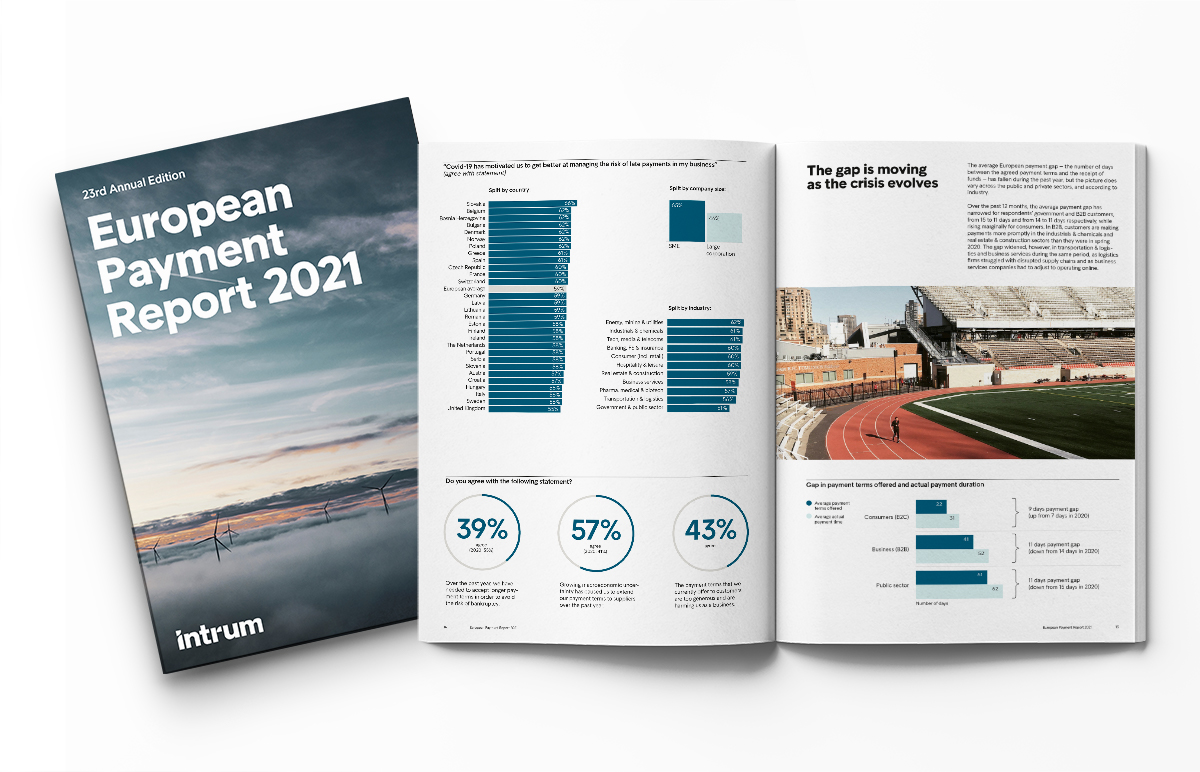A word from the CEO: An era of cautious optimism
Intrum's President and CEO Anders Engdahl shares his reflections of the results from our newly launched European Payment Report 2021.

The European business landscape looks very different today than it did at the time of our last edition of the European Payment Report, when the crisis was still in its relatively early days. In that time, some firms have failed, many have struggled, and some have pivoted through digitalization and robust credit management practices – and are flourishing.
For this year’s research, we surveyed more than 11,000 respondents across 29 countries to understand their payment behaviour, the financial health of their company and the economic outlook in their country of operation. We also carried out in-depth discussions with senior executives from key European businesses to gain deeper insight into the realities on the ground.
Our findings paint a mixed picture of the European economy. The crisis has had a profound impact on operations, but many have seized the opportunity to think differently and are looking to the future with optimism. 45 per cent say they are more enthusiastic about growth than they have been for a long time. Many are planning bold strategic initiatives.
One silver lining of the pandemic is our finding that six in 10 businesses have been motivated to improve the way they manage the risk of late payments.Anders Engdahl, President and CEO, Intrum
Late payments are high on the agenda. Nearly 80 per cent deem long payment terms and the implications of debtors paying late to be problematic – more so than did 12 months ago. At the same time, more than a third (37 per cent) say late payments are prohibiting growth – 10 percentage points higher than in 2020.
Our report also seeks to unpack some of the nuances around the payment gap, which has shrunk following government support and a reluctance on the part of businesses to negotiate longer payment terms.
European governments have pledged hundreds of billions to help their economies weather the Covid-19 storm, but better payment practices also have a crucial role to play in building resilience. One silver lining of the pandemic is our finding that six in 10 businesses (59 per cent) have been motivated to improve the way they manage the risk of late payments.
We are excited to be playing our part in supporting recovery and enabling a brighter future.”Anders Engdahl, President and CEO, Intrum
At the time of writing, it seems certain that Covid-19 will continue to inflict social and economic harm for some time to come. In our most recent European Consumer Payment Report, we found that the pandemic had exacerbated financial inequalities between different consumer groups, with parents, low-income households, and young adults most affected. Understandably, Europeans remain uncertain about the impact that the crisis will have on their future livelihoods.
In this context, sustainable cash flows and long-term profitability are more important than ever before. Economic recovery depends on responsible payments handling, sound credit management, and access to a level playing field. With that in mind, we believe there is a growing need for a comprehensive legal framework that encompasses EU-level regulation, such as the European Late Payments Directive, as well as recent initiatives to tackle non-performing loans.
At Intrum, our mission is to help companies prosper by caring for their customers and applying the principles of ethical debt collection. As the vaccine roll-out gives Europeans a glimpse of the post-pandemic world, we are excited to be playing our part in supporting recovery and enabling a brighter future.
Anders Engdahl
President & CEO Intrum
